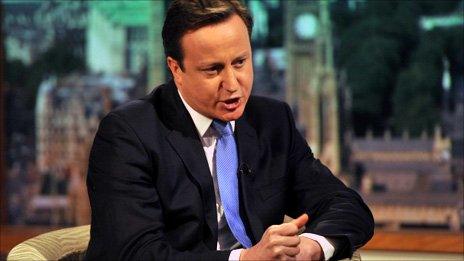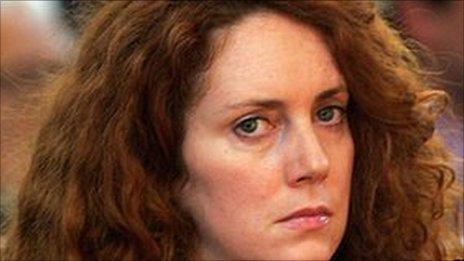Queen's Speech: Economy trumps all
- Published
Nick Robinson in Parliament
It's striking how little we know about this Queen's Speech. Striking because the Government seems less interested in promoting the new legislation that is going to be unveiled by Her Majesty today and more interested in getting its message right on the economy again.
That's quite revealing about where David Cameron and Nick Clegg think this Government is. They believe in the truth of the old cliche that "it's the economy, stupid".
And they fear that they're losing support on that issue, that they're being driven into a position where somehow austerity is seen as bad, and growth is good, and they'll be on the wrong side of the argument.
So although there will be important bills today: a Children & Families Bill which will reform adoption and make it easier for people to swap their maternity and paternity leave around, bills to allow shareholders some sort of vote on executive pay, reform of the banks, reform of the state pension, legislation against drug driving and much more besides, there is nothing that the Government regards as absolutely central to its political message.
And the long-heralded and much-discussed reform of the House of Lords? The very fact it's much-discussed is at root part of the Government's nervousness.
They're aware that what happens in the Commons and the Lords may appear to many outside Westminster to be irrelevant to their daily concerns about the struggle they've got to get a job or to have enough money to look after their family.
And it's interesting that the language is changing on the House of Lords. A proposal for House of Lords reform will undoubtedly form part of the Queen's Speech but gone is the talk of a few months ago of driving it through and using what's called the Parliament Act - in other words allowing the House of Commons to say to the Lords "this was in parties' manifestos, you cannot stand in its way".
Now the language being used is simply saying we want to give Parliament the chance to look at this, the chance to debate it to see if they can reach a consensus.
And there's even rumours behind the scenes of deals being done - that if the Liberal Democrats are willing to accept they can't plough ahead, that they can't get that consensus on their cherished goal of having the House of Lords reformed then they might get something in return for delighting the Conservative Party and withdrawing the whole idea altogether (See Gary Gibbon's blog here, external for more on this possible trade-off).
- Published29 April 2012

- Published29 April 2012
- Published28 April 2012
